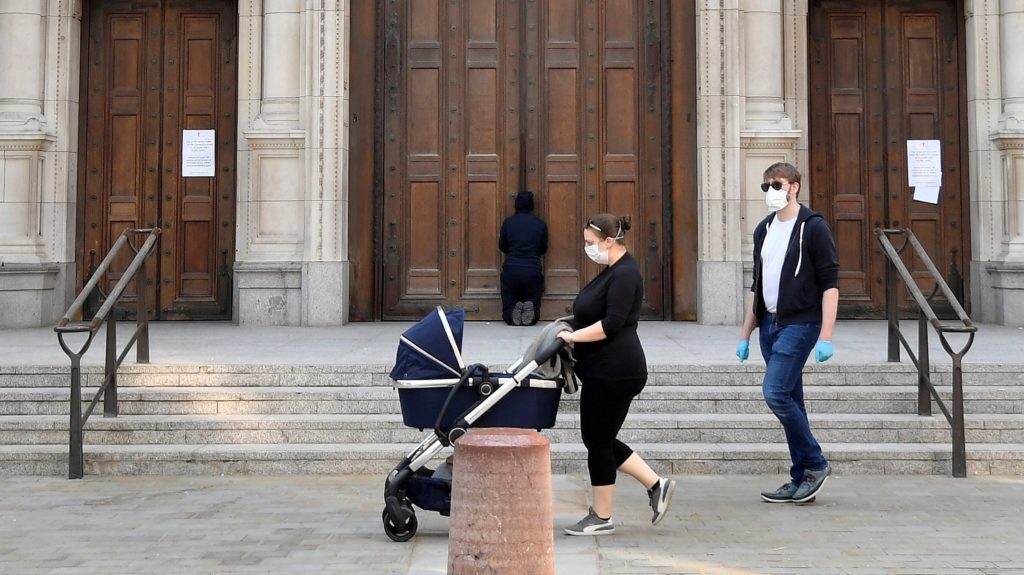The closure of U.K. Catholic churches to prevent the spread of COVID-19 caused widespread mental and physical suffering, a new survey has revealed.
The bishops of England and Wales decided to close their churches March 20, 2020, just three days before the then prime minister, Boris Johnson, announced a national lockdown to slow the spread of the coronavirus and take pressure off health services. The churches remained shut until the following July.
The study undertaken by the Catholic Union of Great Britain, a group set up to scrutinize public policy and make representations to the government on behalf of the church, discovered that 62% of 1,000 people interviewed said their mental and physical well-being were harmed by not being able to go to church.
"The impact of these decisions on people's lives cannot be overlooked," said James Somerville-Meikle, Catholic Union deputy director, in a Dec. 8 statement.
"Words like 'isolated,' 'depressed' and 'lonely' appeared time after time," he said. "It was a harrowing reminder of the impact that restrictions imposed on our churches for the best part of two years had on people's lives."
Somerville-Meikle said: "Perhaps it's no surprise that the vast majority of people (90%) want to see places of worship classed as 'essential' in any future pandemic, and never forced to close again."
Somerville-Meikle noted that Prime Minister Johnson was not asked directly about the decision to lock down churches as part of his evidence to the U.K.'s COVID-19 Inquiry in early December.
He said the survey results would be sent to Heather Hallet, the chair of the inquiry, with a request to hold "a stand-alone evidence session on places of worship in the New Year."
Catholic Union President Sheila Hollins of Wimbledon, a former president of the Royal College of Psychiatrists, said the results of the survey were "shocking" and "distressing."
"They confirm that the lockdown of churches was not only hugely unpopular, but had a real impact on people's well-being," she said when the report was released.
"The increase in the number of people feeling lonely or depressed as a direct consequence of the closures is particularly shocking," she emphasized.
"It is vital that the COVID inquiry properly considers the decisions to close and reopen churches during the pandemic," Hollins said.
"There is a very strong sense that faith and faith communities were pushed to one side when decisions were made, and this needs to be addressed in the learning from the inquiry," she added, saying that "it's clear from these results that places of worship should never be forced to close again."
The churches stayed closed seven weeks after garden centers and construction workers were allowed to resume their services because they were put into the same higher-risk category as pubs, cinemas, hairdressers and beauty salons.
At the time the government argued that "social distancing" within them would be difficult at a time of elevated risk of infection.
The survey by the Catholic Union was the first major study of Catholic attitudes towards the closure of churches during the pandemic and the impact it had on people's health.
One responder described the church closures as "one of the most distressing experiences of my life."
Another said: "I became very depressed -- it felt (like) a part of me was missing."
"I live alone and going to daily Mass is the most important event in my life," another participant said.
The survey also found that just 25% of responders thought that it was necessary to close churches, and that 93% of responders did not think that politicians gave enough consideration to people's faith when making decisions during the pandemic.
The bishops successfully appealed against the churches being subjected to a complete lockdown during the second wave of restrictions in 2021.

